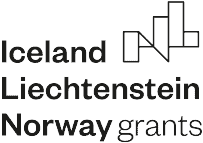Renata Pankiewicz is the statutory director of the association Thank you – Palikerav. Within the association she runs the Book Club Paľikerav, which takes care of the literary background of young Roma readers, as well as authors of literature. We talked to Renata Pankiewicz about recitation, cultivating a relationship with literature and the various activities of the club.
I’ll start straight from the name of the club – “Palikerav” means “thank you” in Romani. It seems to me that this very basic, perhaps the very first Romani word that a Romani student learns, is not so well known in the wider Slovak society. Yet we hear Romani almost everywhere around us. What is your relationship to the word paľikerav and why did you choose it for the name of the club?
Paľikerav is the very first word I learned in Romani. And yet it’s a word that Roma hardly use at all. They use other words to express gratitude, which is what they understand gratitude to mean. And so we thought it was a pretty good, easy-to-remember name.
For several years now, your book club has been organising a recitation competition called “Roma Recite”, designed directly for your readers. In your opinion, how long is the journey from cultivating reading to recitation?
The fact that we are also organizing a recitation competition has developed quite smoothly and naturally, basically directly from the needs of our young people who visit us. They complained to us that they were disappointed that their teacher did not choose them to represent the school, even though they thought they were better than their non-Roma classmates who succeeded, and so on. And so we said that we should give the recitation-loving Roma pupils a space where they could show their recitation talent in its full glory. We started small, with less than twenty reciters, and today, after seven years, our competition has become nationwide with almost 700 entries.
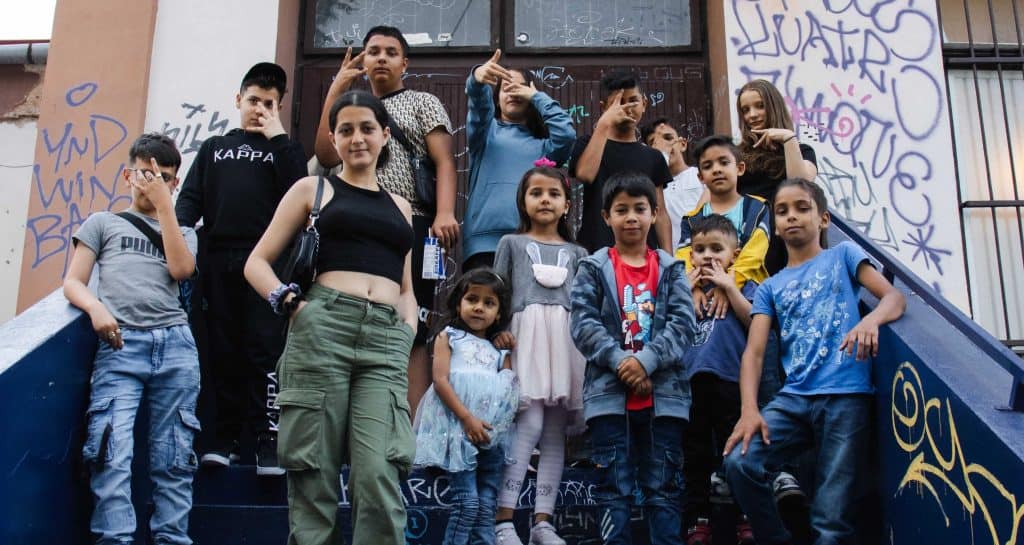
A cynic might ask why Roma men and women need a separate recitation competition, i.e., why the ones that are “open to all” are not enough for them. But the catch is that other competitions are not always so open…
Exactly. Some registered pupils still come to us accompanied by a parent instead of a teacher, as they have not found support for such an activity at school. But for us this is also a big thing, because the support in reciting by a Roma parent is a huge step even in this community.
Your recitation competition is probably also important because children and young people from minority backgrounds have a space for self-realisation and can bring something of their own to the art of recitation…
I certainly did, I recited for years as a pupil and student, and I swear that as far as I can remember I never once met a Roma “fellow participant” in all those years. And yet reciting them is also so rewarding for me, emotionally completely different than in classical competitions. In my opinion, they know how to work more with emotions or with the melody of the voice than non-Romani people. Their natural temperament can draw you into the action perfectly.
How did you struggle with the constraints of the pandemic period in the recitation contest?
Back then, we organized the regional rounds by sending video recordings and the finals online via Zoom. But I have to be honest and say that it was the weakest year back then – by the fact that the pupils were not going to school then, so the teacher did not prepare with them, but also did not choose a piece for them to recite. And what are we going to say, through video or zoom, the emotion is not so easily conveyed. There is no substitute for the audience’s genuine laughter or applause. Nothing replaces the feeling of seeing the faces of the audience during your recitation.
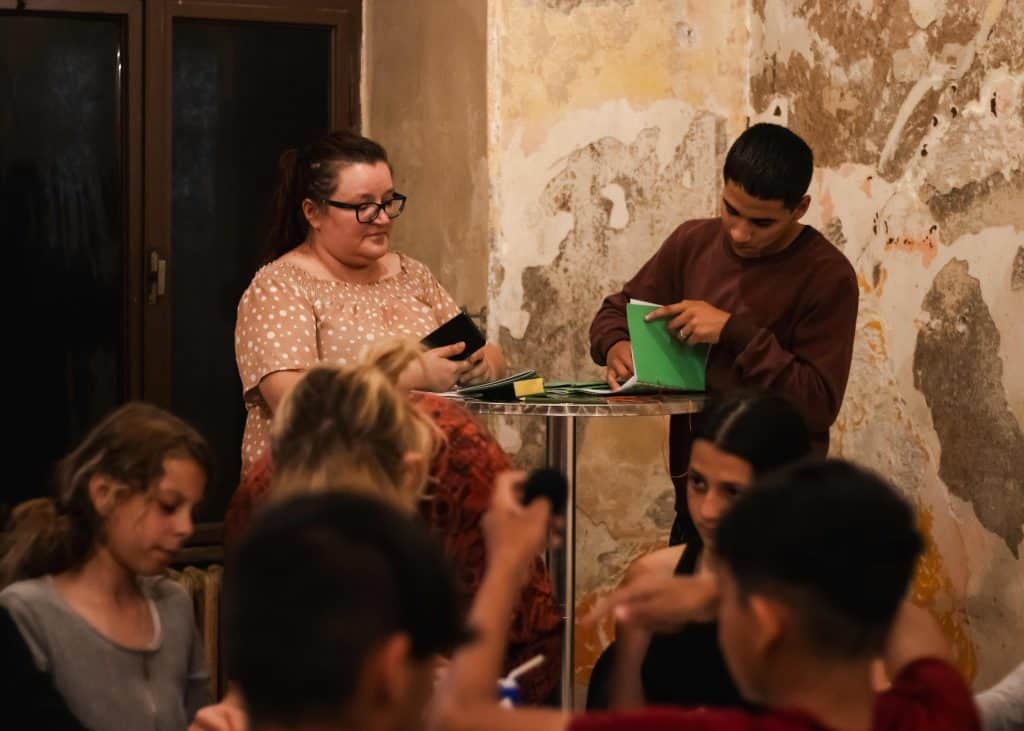
Can you tell us a little bit about the rules and structure of the Roma Recite competition? What are the most important qualities of recitation for you?
Because not all Roma know the Romani language, we decided to allow them to recite in Slovak in addition to Romani. Students of primary schools, secondary schools and universities can apply. This year, exceptionally, we also allowed pupils from special schools to apply, and it was an excellent decision, because it is perfectly visible in these pupils how much they enjoy reciting. The ‘Roma Recite’ competition is a two-round competition – so we first organise regional rounds, from which the winners then go on to the national round.
What opportunities, resources and background do you think Roma recitation, Roma reading communities and Roma literature need in Slovakia?
I would certainly recommend that the teacher should not try to stifle the “Roma-ness”, or as they call it “romipen”, in the Roma pupils, because it shapes them and makes their expression unique. And to give them the chance to participate without distinction in all the events that are organised. I always say the same thing – the Roma are not only great musicians and dancers, but they also excel in intellectual activities.
As for the term “Roma literature”, experience has taught me that it is quite debatable, for example, when we referred to one particular author as a Roma author in our Book Club Palikerav, she corrected us that we should refer to her as a Slovak author who is Roma, which she thought was very important to stress. Nevertheless, I have to say that we are always excited about a new work that comes to us that is written by a Roma/Gypsy. We have read a few of them and we have liked them very much. When we started our book club, the connection between the Roma and the book was perceived as unconventional, strange, innovative. Today it is still not considered common, but I think it is already perceived as possible. And yet, basically, it was enough to show new horizons. And I think that’s the way to go – to show that it can be done.
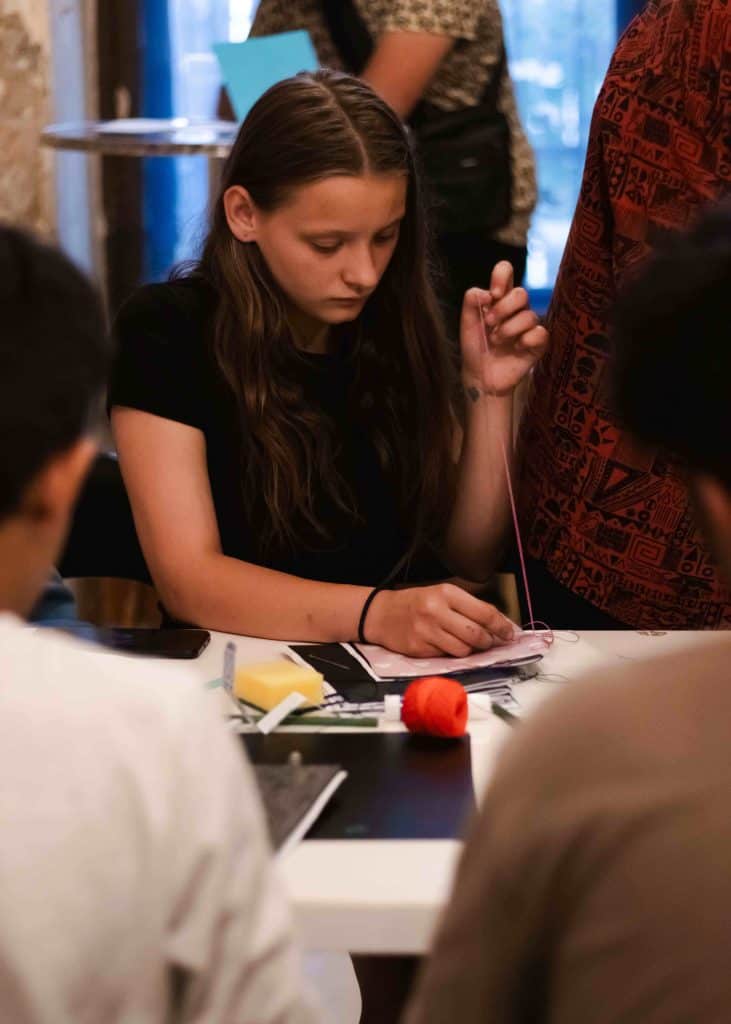
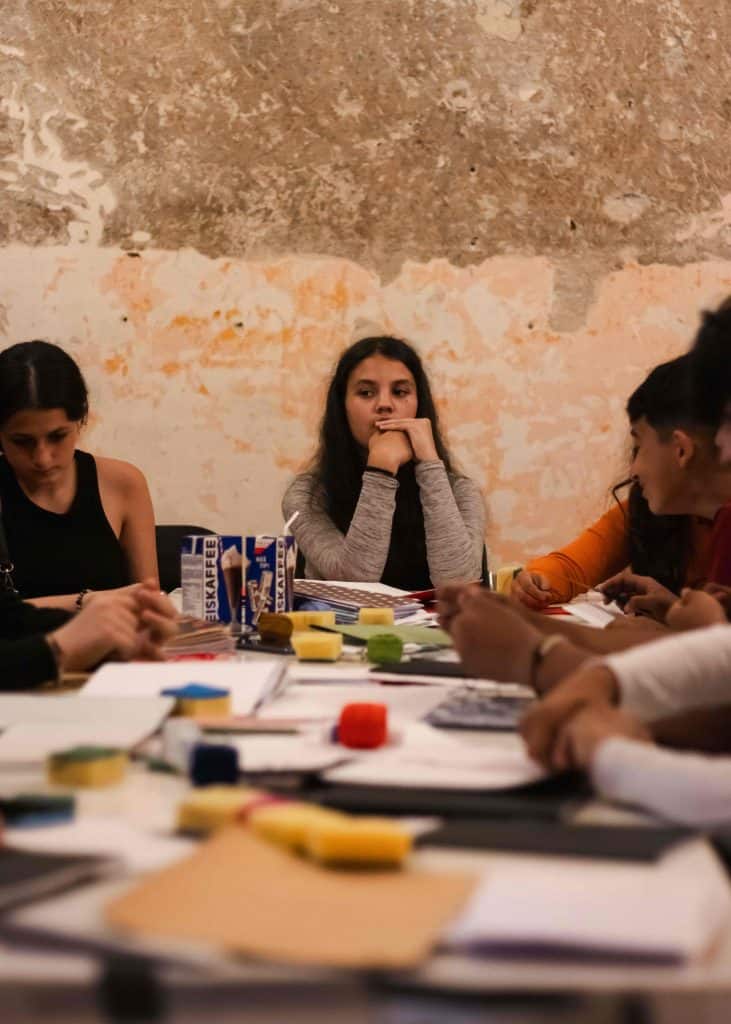
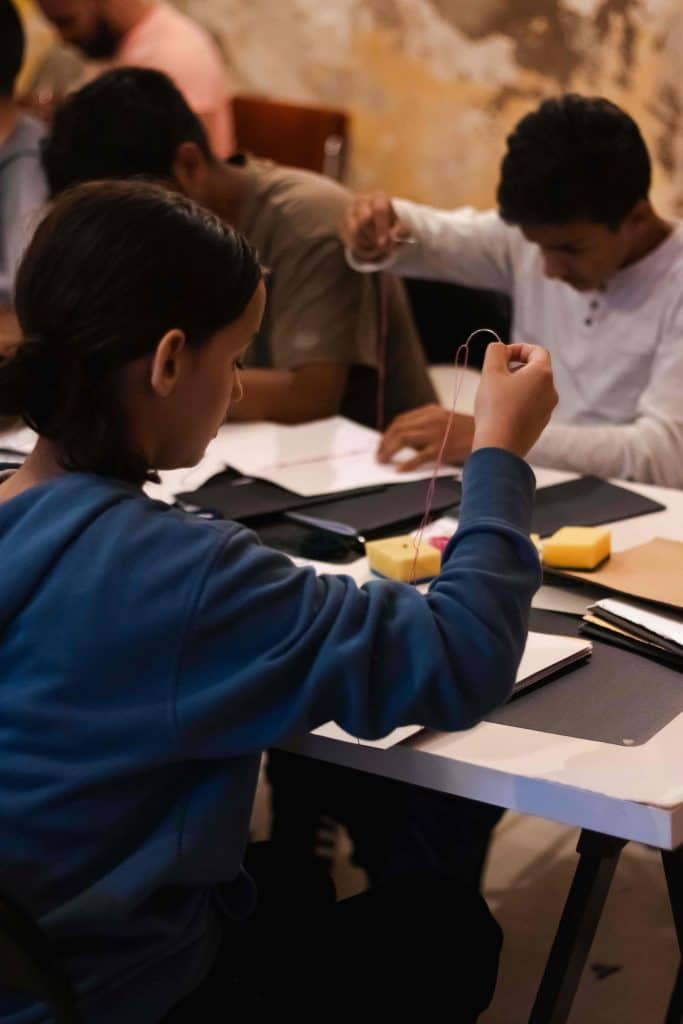
Interview conducted by Dominika Moravčíková
Photography by Sarah Hrescakova
Read about the literary workshops with the Palikerav Book Club in the Smile Cinema.
The Epic Residencies project received a grant from Iceland, Liechtenstein and Norway through the EEA Grants in the amount of 150 000 € and was co-financed in the amount of 22 000 € from the state budget of the Slovak Republic. The project aims at capacity building of partner organisations, inclusive education, intercultural exchange and audience building. To find out more about EEA Grants funded programmes and projects in Slovakia, please visit www.eeagrants.sk. All projects are 15% co-financed by the state budget of the Slovak Republic. Read more information about the project in the published project agreement: 1522/2021 | Register of projects (gov.sk)





